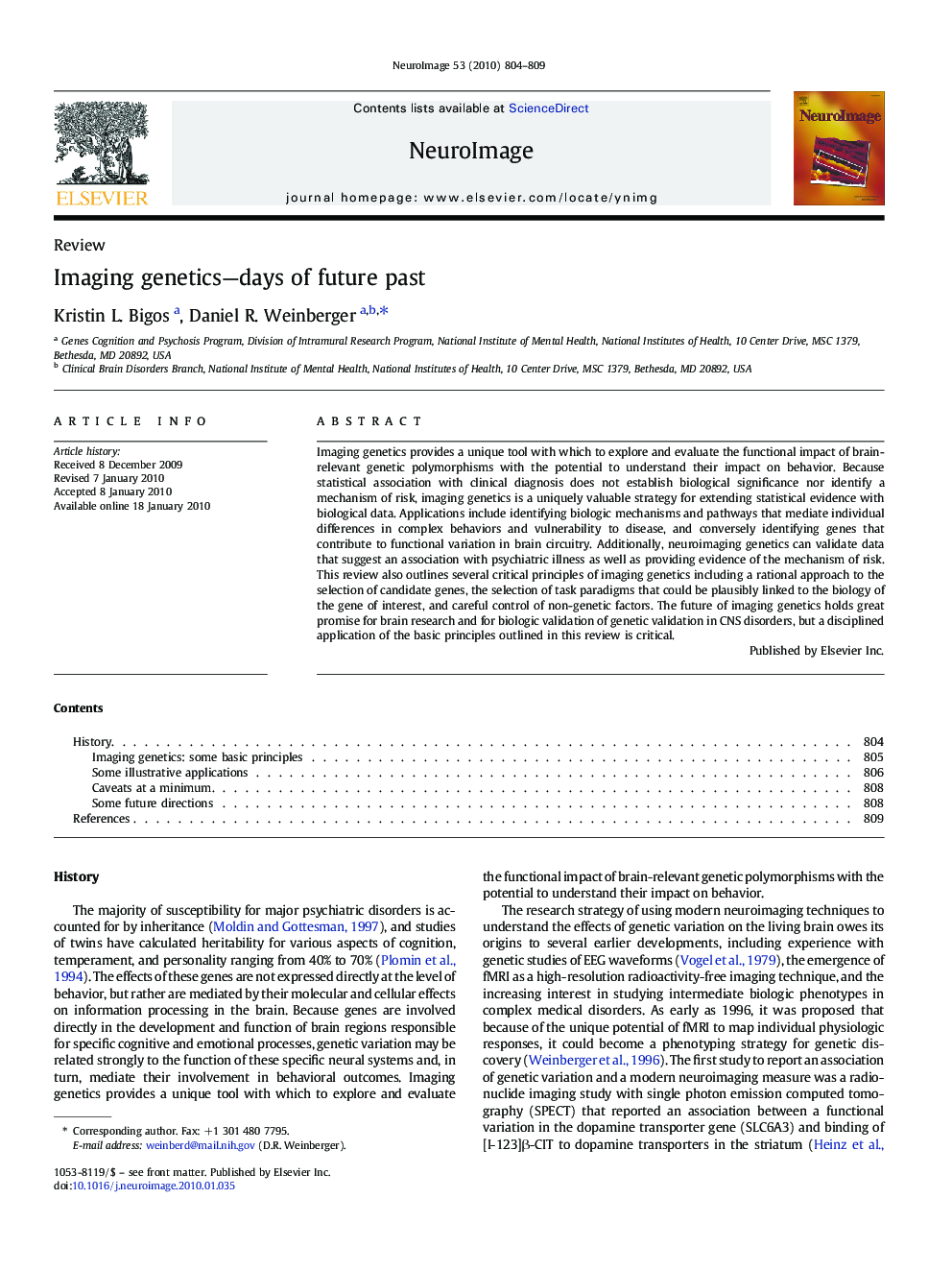| Article ID | Journal | Published Year | Pages | File Type |
|---|---|---|---|---|
| 6034205 | NeuroImage | 2010 | 6 Pages |
Abstract
Imaging genetics provides a unique tool with which to explore and evaluate the functional impact of brain-relevant genetic polymorphisms with the potential to understand their impact on behavior. Because statistical association with clinical diagnosis does not establish biological significance nor identify a mechanism of risk, imaging genetics is a uniquely valuable strategy for extending statistical evidence with biological data. Applications include identifying biologic mechanisms and pathways that mediate individual differences in complex behaviors and vulnerability to disease, and conversely identifying genes that contribute to functional variation in brain circuitry. Additionally, neuroimaging genetics can validate data that suggest an association with psychiatric illness as well as providing evidence of the mechanism of risk. This review also outlines several critical principles of imaging genetics including a rational approach to the selection of candidate genes, the selection of task paradigms that could be plausibly linked to the biology of the gene of interest, and careful control of non-genetic factors. The future of imaging genetics holds great promise for brain research and for biologic validation of genetic validation in CNS disorders, but a disciplined application of the basic principles outlined in this review is critical.
Related Topics
Life Sciences
Neuroscience
Cognitive Neuroscience
Authors
Kristin L. Bigos, Daniel R. Weinberger,
